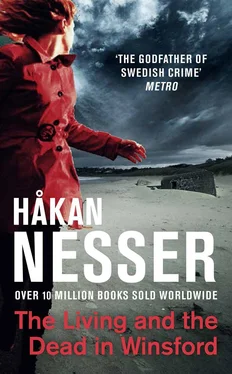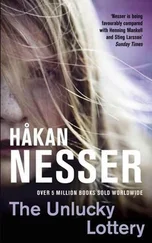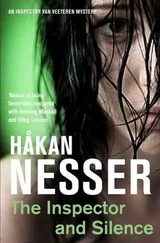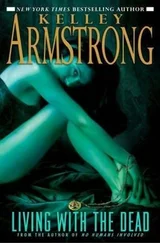Håkan Nesser - The Living and the Dead in Winsford
Здесь есть возможность читать онлайн «Håkan Nesser - The Living and the Dead in Winsford» весь текст электронной книги совершенно бесплатно (целиком полную версию без сокращений). В некоторых случаях можно слушать аудио, скачать через торрент в формате fb2 и присутствует краткое содержание. Год выпуска: 2013, Издательство: Mantle, Жанр: Криминальный детектив, на английском языке. Описание произведения, (предисловие) а так же отзывы посетителей доступны на портале библиотеки ЛибКат.
- Название:The Living and the Dead in Winsford
- Автор:
- Издательство:Mantle
- Жанр:
- Год:2013
- ISBN:нет данных
- Рейтинг книги:4 / 5. Голосов: 1
-
Избранное:Добавить в избранное
- Отзывы:
-
Ваша оценка:
- 80
- 1
- 2
- 3
- 4
- 5
The Living and the Dead in Winsford: краткое содержание, описание и аннотация
Предлагаем к чтению аннотацию, описание, краткое содержание или предисловие (зависит от того, что написал сам автор книги «The Living and the Dead in Winsford»). Если вы не нашли необходимую информацию о книге — напишите в комментариях, мы постараемся отыскать её.
The Living and the Dead in Winsford — читать онлайн бесплатно полную книгу (весь текст) целиком
Ниже представлен текст книги, разбитый по страницам. Система сохранения места последней прочитанной страницы, позволяет с удобством читать онлайн бесплатно книгу «The Living and the Dead in Winsford», без необходимости каждый раз заново искать на чём Вы остановились. Поставьте закладку, и сможете в любой момент перейти на страницу, на которой закончили чтение.
Интервал:
Закладка:
It feels odd, being able to sum up one’s life so simply; but if you miss out your childhood and all the things you thought were so important at the time, it’s straightforward.
Barely a year after Rolf ’s death I went to a garden party in the Old Town. It was the middle of July 1978. I somewhat reluctantly accompanied one of my fellow students on the media studies course, and that was the evening when I met Martin. I was the one who was reluctant, not my fellow student, and that had been the way of things throughout the year. I was not in mourning for just one death, but for two. An old one and a new one — I shall come back to that later — and dealing with one’s sorrow is by no means a simple matter.
It turned out that I had actually met Martin before.
‘Don’t you recognize me?’ asked a young man who came up to me, carrying a large plastic mug of red-coloured punch. He had long, dark hair and Che Guevara on his chest. And was smoking a pipe.
I didn’t. Didn’t recognize him, that is.
‘Try erasing the long hair and Ernesto,’ he said. ‘Lit studies a year ago. Where did you go to?’
Then it dawned on me that it was Martin Holinek. An assistant lecturer in the department — or at least, he had been while I was studying there. We hadn’t exchanged many words, and he hadn’t taught any of the courses I had attended, but I certainly did recognize him once the penny had dropped. He was reputed to be a young genius, and I think Rolf had talked to him quite a lot.
‘That business of your boyfriend,’ he said now. ‘That was absolutely awful.’
‘Yes, it was,’ I said. ‘It was too much for me. I just couldn’t carry on studying as planned.’
‘I’m very sorry,’ he said. ‘Have you managed to get back on your feet again by now, more or less?’
That was not a matter I wanted to start going into, even if it seemed to me his sympathetic tone of voice was genuine, and so I asked instead about his links with the garden party crowd. He explained that he actually lived in the same block and knew most of those present, and so we started talking about the Old Town, and about the advantages and disadvantages of various districts in Stockholm. The suburbs versus the town centre, that kind of thing. We somehow managed to skirt round the fact that it was a matter of class and nothing else — or at least, that’s how I remember it. Then when we sat down to eat at the long table, we ended up next to each other, and I noticed to my surprise that I was enjoying it. Not just Martin, but the whole party. Everybody was happy and unassuming, there were lots of young children and dogs around, and the early summer weather was at its absolute best. I had been rather antisocial ever since the accident, kept myself to myself and wallowed in my gloomy thoughts — and I think this was the first time since the previous August that I laughed spontaneously at something. It was probably something Martin said, but I don’t remember.
But I do recall what he said about Greece, of course. As soon as the following week he was going to board a flight to Athens, and then continue by boat from Piraeus to Samos. Western Samos, on the southern side. He would spend at least a month there in a sort of writers’ collective: he had done the same thing last summer, and when he spoke about it I realized that it had been a stunning experience. Needless to say they were all high for much of the time, and all kinds of weed were smoked, he admitted that readily — quite a few of those present had their roots in California — but nevertheless everything was devoted to literary creation. A writers’ factory, if you like. He wasn’t able to explain exactly what happened in detail that first evening, but everything was concentrated in or around a large house owned by the English poet Tom Herold and his young American wife Bessie Hyatt. I knew who they were: Herold had published several collections of poetry despite the fact that he couldn’t be more than thirty, and Bessie Hyatt’s debut novel, Before I Collapse , had been one of the previous year’s most talked-about books. Not just in the USA, but all over the world. The fact that it was considered to contain various keys to the complicated relationship between her and Herold did its reputation no harm.
Of course I was impressed, and of course I could see that Martin Holinek was proud of being a part of such an illustrious gathering. For a specialist in literary history it would mean that, for once, he could hear things straight from the horse’s mouth — instead of having to plough his way through endless masses of discourses, analyses and essays that attach themselves to every writer’s output, like mould in a badly ventilated cellar. I didn’t know what Martin’s academic research was concentrated on, but if he was working on a doctorate it was more likely that he would be devoting his studies to something Swedish, or at least Nordic.
But I never asked him about that, and a few years later when we were married and living in our first shared flat in Folkungagaten, that collective in Samos was the only thing I could remember clearly from our first conversation.
Looking back, I doubt if we actually discussed much else.
I was employed by Swedish Television because I was good-looking and could speak clearly.
One of my male bosses — in worn-out jeans, a black jacket and with the makings of a dapper little beard — summarized the appointment procedure in those words a few months later. Several of us had gone to one of Stockholm’s pubs after work — I don’t remember which — and since he had been involved in that procedure he suggested that I might like to accompany him afterwards to his five-roomed flat in upmarket Östermalm, and listen to some of his unique Coltrane recordings. I declined the offer on the grounds that I was not only happily married but also pregnant, and if I’m not much mistaken my place was taken by a jolly, red-haired colleague who had presumably been awarded her contract on the same well-established grounds as me.
Be that as it may, the Monkeyhouse became my workplace. That was what Martin and I used to call the television centre all the years I worked there — just as our name for the university he worked at was Intensive Care, or sometimes the Sandpit. I read the news for several years, was hostess for various unmissable discussion programmes, and then shortly after the turn of the century started working as a producer. I could still speak clearly, but my looks had undergone the subtle change that maturity brings and were no longer considered to be ideal for the screen. As another male boss with a dapper beard explained to me on one occasion.
However, for the whole of my adult life I have grown used to being greeted by people completely unknown to me. In the supermarket, in the street, on the underground. The harsh truth is that half of Sweden recognizes me; and even if it was Martin who dominated those headlines in May and June — I have no wish to take that distinction away from him — no doubt my name and my face played a significant role when it came to assessing the news value.
But I didn’t resign from the Monkeyhouse. I merely applied for a year’s leave of absence — a request that was granted in two minutes without specific comment by Alexander Skarman, who was temporarily in charge of such matters during the summer holidays. It was the middle of July, and hotter than it ought to have been in a house occupied by renowned primates. He stinks of Riesling after his lunch, and comes from an established and loyal media family, although he is by no means a mogul or even especially gifted. He was wearing a linen tunic-shirt and shorts. How times have changed. . Sandals and filthy feet.
I had not given any motive for my application, nor was that necessary given the circumstances.
Читать дальшеИнтервал:
Закладка:
Похожие книги на «The Living and the Dead in Winsford»
Представляем Вашему вниманию похожие книги на «The Living and the Dead in Winsford» списком для выбора. Мы отобрали схожую по названию и смыслу литературу в надежде предоставить читателям больше вариантов отыскать новые, интересные, ещё непрочитанные произведения.
Обсуждение, отзывы о книге «The Living and the Dead in Winsford» и просто собственные мнения читателей. Оставьте ваши комментарии, напишите, что Вы думаете о произведении, его смысле или главных героях. Укажите что конкретно понравилось, а что нет, и почему Вы так считаете.












